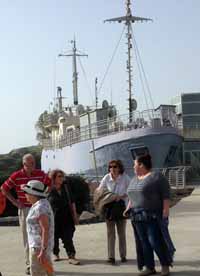In February, I spent ten days in the West Bank, the region of Israel/Palestine that is officially off-limits to Israelis and — theoretically, maybe, roughly — intended to become an independent Palestinian state if some version of the “two-state solution” becomes a reality.
 When I mentioned to friends in the United States that I was headed there, many warned me to be careful — the West Bank is only mentioned in the US media when there is violence, so we associate it with violence. When I mentioned my plans to Jewish Israelis, the reactions were more varied: some were concerned about my safety, some puzzled why I wanted to go, some curious to hear what it is like, some irritated that I would expect to learn something about the region on a short visit — with the assumption I would come away more critical of Israeli policies — some encouraging me and saying they wished they could go there as well.
When I mentioned to friends in the United States that I was headed there, many warned me to be careful — the West Bank is only mentioned in the US media when there is violence, so we associate it with violence. When I mentioned my plans to Jewish Israelis, the reactions were more varied: some were concerned about my safety, some puzzled why I wanted to go, some curious to hear what it is like, some irritated that I would expect to learn something about the region on a short visit — with the assumption I would come away more critical of Israeli policies — some encouraging me and saying they wished they could go there as well.
As it turned out, the West Bank matched neither the warnings nor my expectations. First of all, I had not realized how many young tourists are traveling there, and was startled to find the words they frequently used to describe the occupied territories, as compared with official Israel, were “relaxed” and “laid back.”
I was staying in hostels full of young backpackers from Europe, Australia, New Zealand, the United States, Latin America, Japan, and China. Some were there specifically to explore the political/military situation and experience the occupation: some expected to write about it, to bring back pictures, to make films. But many were just traveling between Jordan and Israel, 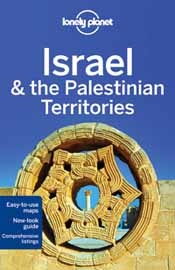 seeing someplace new, having a vacation. The Lonely Planet guidebook to Israel and the Palestinian Territories begins the relevant section on cheerful note:
seeing someplace new, having a vacation. The Lonely Planet guidebook to Israel and the Palestinian Territories begins the relevant section on cheerful note:
“Welcome” is a word you hear a lot in the West Bank. Whether it is shouted by a street trader in a bustling souk, expressed with a smile over a plate of falafel, or roared from a taxi over booming Arabic music, Palestinians are forever wanting to make tourists feel appreciated.
I heard that word constantly, from children, young adults, and elders, along with “What is your name?” and “Where are you from?” When I answered, “America,” I got a range of responses, from “Good!” to “You like Trump?” But always accompanied by smiles and “Welcome.”
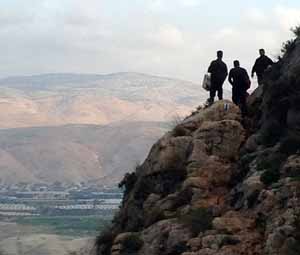 I recommend any traveler visiting Israel spend some time on the West Bank — not just a day-trip to Bethlehem, but staying a while, going to nightclubs in Ramallah, exploring the old city of Nablus, visiting the Freedom Theater in Jenin, or hiking around the Jordan Valley — and be assured, there are plenty of other travelers making those trips (women as well as men, often on their own), and having a wonderful time.
I recommend any traveler visiting Israel spend some time on the West Bank — not just a day-trip to Bethlehem, but staying a while, going to nightclubs in Ramallah, exploring the old city of Nablus, visiting the Freedom Theater in Jenin, or hiking around the Jordan Valley — and be assured, there are plenty of other travelers making those trips (women as well as men, often on their own), and having a wonderful time.
None of which belies the realities of the political situation. The Lonely Planet guide continues: “it is true that dirt-poor refugee camps, barbed-wire checkpoints and the towering separation wall are rarely far from the eye…” Indeed, that wall has itself become a tourist attraction, thanks to the British artist Banksy and an international horde of graffiti taggers. I was there during a relatively quiet time, but there were daily stories in the media about military raids and arrests, and the friendly conversations with locals never went for long without touching on the occupation.
 My first night in Ramallah, I got in a long discussion with Nidal Abu Maria, who owns the Habibi Hostel, where I was staying. Nidal speaks perfect English and is active in organizing tours, informational programs, and other forms of cultural exchange between Palestinians and foreign visitors. In the past he was also involved in dialogs with Israeli groups, but says he stopped taking part in those interchanges because, “I like connections between people, but I don’t want to normalize occupation.”
My first night in Ramallah, I got in a long discussion with Nidal Abu Maria, who owns the Habibi Hostel, where I was staying. Nidal speaks perfect English and is active in organizing tours, informational programs, and other forms of cultural exchange between Palestinians and foreign visitors. In the past he was also involved in dialogs with Israeli groups, but says he stopped taking part in those interchanges because, “I like connections between people, but I don’t want to normalize occupation.”
That word, “normalization,” has become increasingly common due to the BDS (Boycott, Divestment, and Sanctions) movement, but it has a long history in Israel. Since the dream of an Israeli state began to seem a possibility in the early twentieth century, Zionist leaders have regularly expressed the wish that this state could simply be considered a “normal” nation like France — almost always France;1 sometimes Britain; never like Egypt, Lebanon, Nigeria, Mexico, or Japan.  That choice is notable because France is not “normal” in the sense of being typical; on the contrary, it has long been held up as an ideal, particularly for German-speaking Central Europeans who dreamed of living wie Gott in Frankreich (like God in France), and more particularly for Central European Jews: Joseph Roth, arriving in France via Vienna and Berlin in the interwar years, wrote, “Paris is where the Eastern Jew begins to become a Western European.”
That choice is notable because France is not “normal” in the sense of being typical; on the contrary, it has long been held up as an ideal, particularly for German-speaking Central Europeans who dreamed of living wie Gott in Frankreich (like God in France), and more particularly for Central European Jews: Joseph Roth, arriving in France via Vienna and Berlin in the interwar years, wrote, “Paris is where the Eastern Jew begins to become a Western European.”
The tricky thing about Israel becoming “normal” in this sense is that it is not in Europe and most of its population is not European — or at least no more European than the population of neighboring Lebanon, which has a prior claim: Beirut was already hailed in the mid-nineteenth century as “the Paris of the Middle East.” Which could be my cue to digress and note that what is commonly traced as “European” culture is more accurately Mediterranean, that Judeo-Christian culture is specifically from this part of the Mediterranean, and that the Islamic Mediterranean preserved classical “European” culture while Europe was enduring its “Dark Ages…”
…but for now I want to get back to the West Bank and “normalization.” Because the Israeli dream of normalcy is very much alive, and these days is very much dependent on not thinking about what is happening on the West Bank and Gaza, much less in the refugee camps in Lebanon and Jordan.
That was another thing I didn’t understand before visiting the region: Like the West Bank, Israel tends to make international news when there is violence, or the threat of violence, or at least the ominous specter of violence. So we tend to think of Israel as trapped in a conflict that needs to get resolved, whether through a two-state 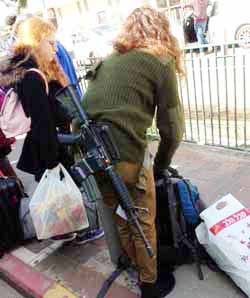 solution, a one-state solution, or even a nasty war — but, in any case, resolved. A lot of conversations in Israel reinforce that impression, but after a while I realized that if I didn’t steer the talk in that direction it needn’t go there and most Israelis could probably go for days without mentioning the Occupied Territories or any Palestinian conflict. Because, quite simply, it doesn’t affect their day-to-day life. Yes, they see soldiers all around, often carrying automatic rifles, but being in the army is a basic part of growing up for most Israelis, so they’re used to that. And it is easy to live within a few minutes walk of the wall that blocks off the West Bank and never see it, or ever talk to a Palestinian — or to talk to Palestinians, but not about that.
solution, a one-state solution, or even a nasty war — but, in any case, resolved. A lot of conversations in Israel reinforce that impression, but after a while I realized that if I didn’t steer the talk in that direction it needn’t go there and most Israelis could probably go for days without mentioning the Occupied Territories or any Palestinian conflict. Because, quite simply, it doesn’t affect their day-to-day life. Yes, they see soldiers all around, often carrying automatic rifles, but being in the army is a basic part of growing up for most Israelis, so they’re used to that. And it is easy to live within a few minutes walk of the wall that blocks off the West Bank and never see it, or ever talk to a Palestinian — or to talk to Palestinians, but not about that.
I was in the region to learn about the Israeli/Palestinian situation, so I kept asking people where they thought things were headed, and most of the conversations went more or less as expected–a range of responses, some guarded optimism, a lot of pessimism — but one evening during the first week I was talking with a young man in a bookstore in Jerusalem and he said, “I don’t see why things can’t just stay the way they are.”
That was a new idea to me. I had never considered the possibility that anyone could be comfortable with the current situation. But the more I thought about it, the more sense it made. Indeed, when I mentioned that response to Palestinians, their standard reaction was, “Of course that’s what they think — this has been working for them for fifty years. Why would they want to change?”
Once I absorbed that point of view, other discussions began to feel completely different. For example, when Israelis talked optimistically about projects that bring together Jews and Arabs or young people from Israel and the West Bank, or that bus groups of children from the West Bank to Israeli beaches in the summer. Because if you frame those projects as steps toward a solution they seem positive,  but if you frame them as ways to reduce tension and let off steam while extending the wall, maintaining the checkpoints, expanding the settlements, ensuring the refugees in Lebanon and Jordan do not return, and carrying out daily raids, arrests, and frequently killings on the West Bank — that is, while keeping things the way they are — they feel not like progress but like ways of normalizing the status quo.
but if you frame them as ways to reduce tension and let off steam while extending the wall, maintaining the checkpoints, expanding the settlements, ensuring the refugees in Lebanon and Jordan do not return, and carrying out daily raids, arrests, and frequently killings on the West Bank — that is, while keeping things the way they are — they feel not like progress but like ways of normalizing the status quo.
Though the details are unique to Israel/Palestine, the process is increasingly familiar around the world. It is the process by which the United States’ invasions of Afghanistan and Iraq were framed as emergency actions, in the interests of national security, and because the situation was temporary the US could not be held responsible for creating longterm solutions, and yet we must maintain security… so, after a while, we’re just there, because we have to be there… and we are tightening our immigration laws and border controls to prevent people from those regions from entering the United States, because we live in an increasingly dangerous world, the proof being that we have to keep the troops over there, and those people over there.
Meanwhile we go on with our lives, and the rising paranoia is belied by the lowest domestic murder rate in the last half-century.2 And although “illegal” Mexican immigration is also lower than it has been in decades, we are building a wall on the border…
 …and I’m not just making an analogy: Israeli companies are exporting their well-tested technology around the world, so, for example, Elbit Systems has provided Arizona with the same electronic detection fence system used to separate Israelis from Palestinians and now boasts on its website that “recent… activities in the homeland security area include initiation of the first phase of the Integrated Fixed Towers program for the U.S. Customs and Border Protection Agency and the award of contracts for homeland security solutions for Latin American customers.”3
…and I’m not just making an analogy: Israeli companies are exporting their well-tested technology around the world, so, for example, Elbit Systems has provided Arizona with the same electronic detection fence system used to separate Israelis from Palestinians and now boasts on its website that “recent… activities in the homeland security area include initiation of the first phase of the Integrated Fixed Towers program for the U.S. Customs and Border Protection Agency and the award of contracts for homeland security solutions for Latin American customers.”3
All of which inevitably leads to the question: if this is a global situation, where do the tourists visiting the West Bank fit in, and why are we “welcome”? I asked various Palestinians, and the usual answer was they want to be open to the world, with fewer walls, fewer borders, and more communication. People said they want outsiders to come and meet them, talk with them, see the situation, experience the occupation, learn that they are not terrorists, not the problem…
…and, for the moment, speaking for myself, I will argue that this not just another form of normalization, because despite the tourist tips in the Lonely Planet guide, visiting the West Bank is not viewed by most non-Palestinians as normal. The Separation Wall and security checkpoints are not there only — or maybe even primarily — to control and limit Palestinians, but also to make them invisible, seen only as nameless extras in news stories from a distant, foreign, frightening place. By going there we can do at least a little to counter that narrative. So although it is not fair that we can cross that wall and pass those checkpoints so much more easily than they can, for the moment we can, and as long as we remain welcome, we should.

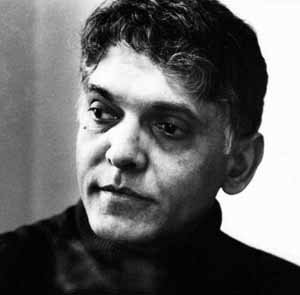 April 20, 2018:
April 20, 2018: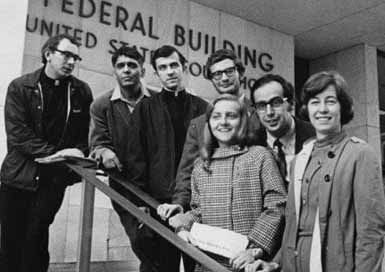 about his arrest and upcoming trial as a member of the Harrisburg 7, one of the famous conspiracy trials of the Vietnam War era. His fellow defendants were all Catholic clergy, including Phillip Berrigan, and Eqbal often told how his mother called him when she heard the news, saying: “I can understand you being against the Vietnam war. I can even understand you being arrested for this. But what are you doing being arrested with a group of priests and nuns?!”
about his arrest and upcoming trial as a member of the Harrisburg 7, one of the famous conspiracy trials of the Vietnam War era. His fellow defendants were all Catholic clergy, including Phillip Berrigan, and Eqbal often told how his mother called him when she heard the news, saying: “I can understand you being against the Vietnam war. I can even understand you being arrested for this. But what are you doing being arrested with a group of priests and nuns?!”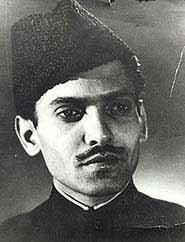 was telling stories of his youth — that was the only time I heard him talk about seeing his father killed when he was a small boy, hiding behind his father’s legs as the killers attacked, and about fighting in Kashmir. My parents eventually drifted off to bed, but I stayed up, sixteen years old and enthralled. He talked about his student days in Paris, meeting young revolutionaries from around the world. He was particularly struck by the Algerian students who were going home to fight with the
was telling stories of his youth — that was the only time I heard him talk about seeing his father killed when he was a small boy, hiding behind his father’s legs as the killers attacked, and about fighting in Kashmir. My parents eventually drifted off to bed, but I stayed up, sixteen years old and enthralled. He talked about his student days in Paris, meeting young revolutionaries from around the world. He was particularly struck by the Algerian students who were going home to fight with the 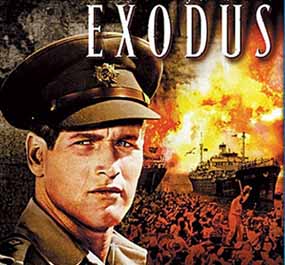 There are other stories, but at the moment I keep coming back to that image of Exodus. Partly because I watched the movie in preparation for my trip to Israel/Palestine and recently wrote about
There are other stories, but at the moment I keep coming back to that image of Exodus. Partly because I watched the movie in preparation for my trip to Israel/Palestine and recently wrote about 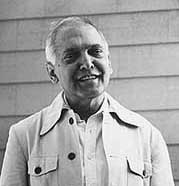 I saw Eqbal more rarely in later years. He founded a university in Pakistan and was there much of the time, while I was touring as a musician and writing for the Boston Globe, so one way and another our paths didn’t cross. Our last meeting was at his retirement from Hampshire College, where he had taught for some years. Edward Said and Howard Zinn were there, among many others, and I spoke briefly about Eqbal’s cooking. At the party afterwards he asked me to come to Pakistan and work with him, and I’ll always wonder if he was serious about that, and how my life might have been different if he was and I’d gone.
I saw Eqbal more rarely in later years. He founded a university in Pakistan and was there much of the time, while I was touring as a musician and writing for the Boston Globe, so one way and another our paths didn’t cross. Our last meeting was at his retirement from Hampshire College, where he had taught for some years. Edward Said and Howard Zinn were there, among many others, and I spoke briefly about Eqbal’s cooking. At the party afterwards he asked me to come to Pakistan and work with him, and I’ll always wonder if he was serious about that, and how my life might have been different if he was and I’d gone.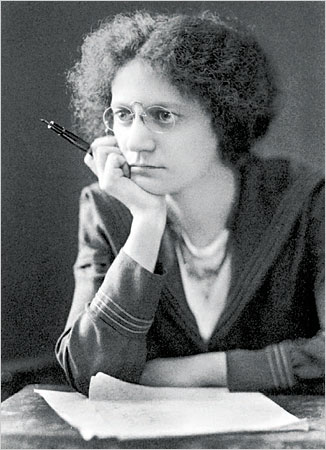 “What terms of entry may we impose on the immigrant without infringing on his inalienable rights, as defined in our national charter?” Mary Antin asked in 1914. Her answer:
“What terms of entry may we impose on the immigrant without infringing on his inalienable rights, as defined in our national charter?” Mary Antin asked in 1914. Her answer: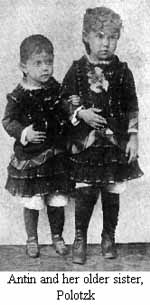 When I was a little girl, the world was divided into two parts; namely, Polotzk, the place where I lived, and a strange land called Russia. All the little girls I knew lived in Polotzk, with their fathers and mothers and friends. Russia was the place where one’s father went on business. It was so far off, and so many bad things happened there, that one’s mother and grandmother and grown-up aunts cried at the railroad station…
When I was a little girl, the world was divided into two parts; namely, Polotzk, the place where I lived, and a strange land called Russia. All the little girls I knew lived in Polotzk, with their fathers and mothers and friends. Russia was the place where one’s father went on business. It was so far off, and so many bad things happened there, that one’s mother and grandmother and grown-up aunts cried at the railroad station…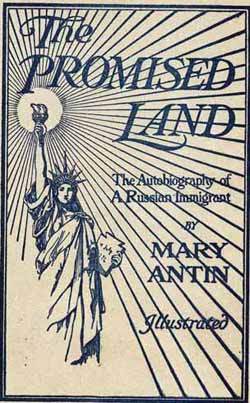 Antin was an ardent believer in the ideals exemplified by Lazarus’s poem and The Declaration of Independence, and as an activist for women’s education and immigrant rights she fought to make her fellow citizens live up to them. When her memoir became a best-seller, she followed with a book-length polemic:
Antin was an ardent believer in the ideals exemplified by Lazarus’s poem and The Declaration of Independence, and as an activist for women’s education and immigrant rights she fought to make her fellow citizens live up to them. When her memoir became a best-seller, she followed with a book-length polemic: 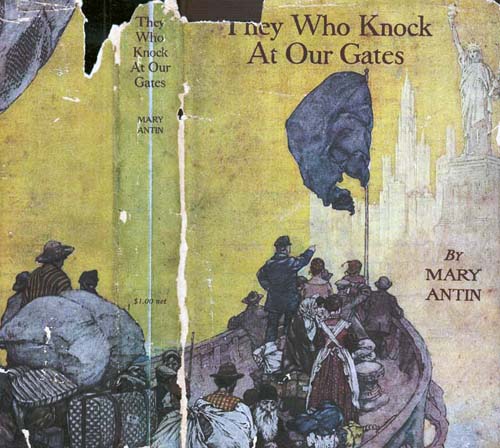 citizenship and solid nation-state borders were still in their infancy, and modern readers will find her next passage surprising:
citizenship and solid nation-state borders were still in their infancy, and modern readers will find her next passage surprising: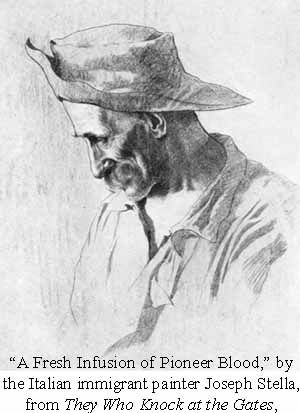 Some people see no indication of the future in the fact that race-blending has been going on here from the beginning of our history, because the elements we now get are said to differ from us more radically than the elements we assimilated in the past. To allay our anxiety on this point, we have only to remind ourselves that none of the great nations of Europe that present such a homogeneous front to-day arose from a single stock…
Some people see no indication of the future in the fact that race-blending has been going on here from the beginning of our history, because the elements we now get are said to differ from us more radically than the elements we assimilated in the past. To allay our anxiety on this point, we have only to remind ourselves that none of the great nations of Europe that present such a homogeneous front to-day arose from a single stock…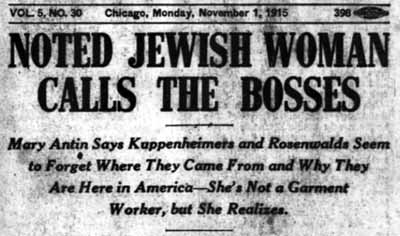 article quoting her upbraiding immigrant bosses for forgetting their roots and mistreating striking garment workers.
article quoting her upbraiding immigrant bosses for forgetting their roots and mistreating striking garment workers.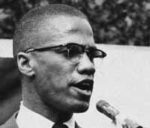 “Every time you see a cop on the beat, ask yourself what he is protecting, and from who.”
“Every time you see a cop on the beat, ask yourself what he is protecting, and from who.”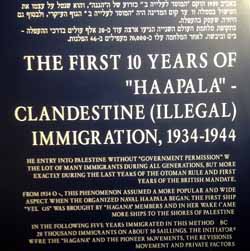 And I’m glad all the museums and historical sites use the word “illegal,” because although I understand why some people prefer euphemisms like “undocumented” and “unauthorized,” the reality is that governments make laws to protect some people from other people — and when you argue that the people you support are not criminals, you are arguing that other people can justifiably be labeled that way.
And I’m glad all the museums and historical sites use the word “illegal,” because although I understand why some people prefer euphemisms like “undocumented” and “unauthorized,” the reality is that governments make laws to protect some people from other people — and when you argue that the people you support are not criminals, you are arguing that other people can justifiably be labeled that way.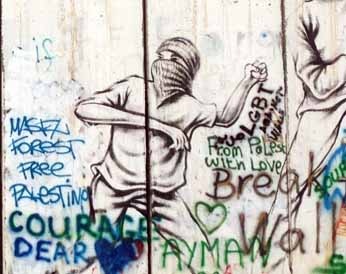 The Israeli contrast –narratives of desperate Jewish refugees throwing cans at soldiers seventy years ago, told to rally support for Jewish soldiers shooting desperate refugees throwing stones today – is particularly striking because the time and space are so compressed. But the essential contrast is so familiar as to be almost universal: virtually all national narratives include brave struggles against oppressive governments, and few governments maintain their power for long with clean hands.
The Israeli contrast –narratives of desperate Jewish refugees throwing cans at soldiers seventy years ago, told to rally support for Jewish soldiers shooting desperate refugees throwing stones today – is particularly striking because the time and space are so compressed. But the essential contrast is so familiar as to be almost universal: virtually all national narratives include brave struggles against oppressive governments, and few governments maintain their power for long with clean hands. As I write, Israeli troops are massed on the no man’s land separating Israel from Gaza, shooting tear gas grenades and live ammunition at Palestinian refugees who are gathered on the other side, throwing rocks, burning tires, and seeking to breech the barriers and send thousands of men, women and children across.
As I write, Israeli troops are massed on the no man’s land separating Israel from Gaza, shooting tear gas grenades and live ammunition at Palestinian refugees who are gathered on the other side, throwing rocks, burning tires, and seeking to breech the barriers and send thousands of men, women and children across.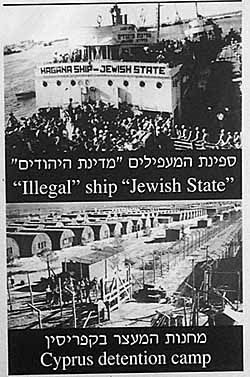 In Tel Aviv, the museum of the Hagganah, the Jewish army that faced British and Arab forces in the late 1940s, has a display honoring “Ha’apala – Clandestine (Illegal) Immigration, 1934-1944,” and two museums of the Etzel, the more radical Jewish underground, likewise celebrate the brave men and women who smuggled Jewish refugees into Palestine, defying the British army and even the Haggana, which in some periods helped the British, much as the Palestinian Authority’s police now work with Israeli forces to control illegal migration from the West Bank.
In Tel Aviv, the museum of the Hagganah, the Jewish army that faced British and Arab forces in the late 1940s, has a display honoring “Ha’apala – Clandestine (Illegal) Immigration, 1934-1944,” and two museums of the Etzel, the more radical Jewish underground, likewise celebrate the brave men and women who smuggled Jewish refugees into Palestine, defying the British army and even the Haggana, which in some periods helped the British, much as the Palestinian Authority’s police now work with Israeli forces to control illegal migration from the West Bank. Itzak Belfer, one of the passengers, describes how the British troops were massed on the deck of the destroyer, and someone brought up boxes of tin cans to throw at the soldiers. One of the men commanding the ship for the Palyam, the Jewish rebel navy, recalls: “We told them to give the British a hard time — to resist, to throw things, not let them board the ship, and maybe we could make it to the shore.”
Itzak Belfer, one of the passengers, describes how the British troops were massed on the deck of the destroyer, and someone brought up boxes of tin cans to throw at the soldiers. One of the men commanding the ship for the Palyam, the Jewish rebel navy, recalls: “We told them to give the British a hard time — to resist, to throw things, not let them board the ship, and maybe we could make it to the shore.” The British soldiers began to board, and Belfer, his voice thrilling at the memory, recalls throwing the cans of food at them: “That kind of can, when someone throws it, it can do a lot of damage.” Then the Palyam man on the ship’s bridge angrily turned the wheel and rammed their boat into the destroyer. “We were all knocked down,” Belfer says, but “We all felt like… ‘We did it! We showed them!’”
The British soldiers began to board, and Belfer, his voice thrilling at the memory, recalls throwing the cans of food at them: “That kind of can, when someone throws it, it can do a lot of damage.” Then the Palyam man on the ship’s bridge angrily turned the wheel and rammed their boat into the destroyer. “We were all knocked down,” Belfer says, but “We all felt like… ‘We did it! We showed them!’”